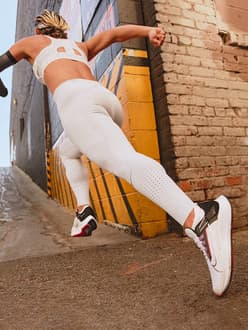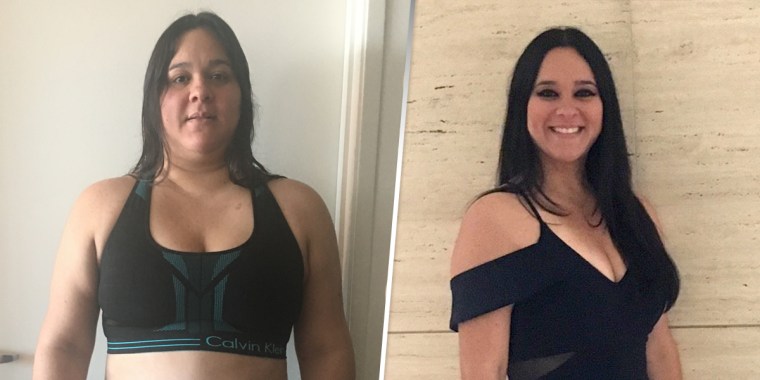
It's possible to wonder how much you could earn as a Columbus, OH personal trainer. You can start by looking at the average salary for personal trainers in the city. These trainers also have many career options.
Average salary for a Columbus personal trainer, OH
The average salary for a Columbus personal trainer is $58,107/year or $28/hour. The salaries range from $42,070 to $69.670. A Bachelor's degree is the most common education for personal trainers. ERI's compensation surveys are used to calculate the salary for this career. Cost of living data are derived from commercially available housing data and effective income tax rates.
The salary of a personal coach will vary depending on the experience and the location. A certified personal trainer will earn more than someone without certification. However, a personal trainer in Columbus, OH can earn much more than someone in another city if they work in a high demand area. Personal trainers working in high-end gyms or performance-based centers make more and have a higher clientele.

To become a Columbus certified personal trainer, you must complete a certification program. The program should also require you to evaluate client questionnaires and physiological data in order to determine the most appropriate fitness regimen for clients.
Potential earning potential as a Columbus personal trainer
Personal trainers work with clients to improve their fitness levels. Some work with professional athletes, while others focus on non-athletes. They design exercise programs and make sure that equipment is properly used. They build relationships with clients and offer fitness evaluations. Personal trainers in Columbus have many career options.
Columbus is home to over 800k people. There are not many job opportunities in the larger cities. However there are many personal training positions that pay higher than average salaries. Ohio's personal trainer salary average is $58,125, which compares to the $61,800 national average.
Post-secondary education is recommended for those who are interested in becoming personal trainers in Columbus. Employers won't hire personal trainers who are not certified. Also, applicants with certifications from national certification bodies are more likely get a job.

You have many options for a career as a personal trainee
Career options as a personal trainer in Columbus can be varied, with a wide range of employment opportunities available. You can work in a gym, on your own, or consult with other fitness professionals. You can also focus on niche or marketing. This can be done remotely with messaging apps, live video streams, or by being physically present.
Personal trainers are most likely to have a relevant college education. This is because it shows a solid foundation in health and fitness promotion, and provides theoretical knowledge. Many colleges and universities offer programs in this area, and you can take online courses if you have a tight schedule. Additionally, each personal training organization has its own requirements, so you should check to make sure you have what you need to meet their standards.
Dean will pursue a master's degree in the same field after earning his Bachelor of Science from Ohio University in Physical Activity & Sport Coaching. He enjoys working with fitness enthusiasts, and loves teaching about healthy body composition and nutrition. The American Council on Exercise has certified him as a personal trainer.
FAQ
Can exercise help me lose weight?
Yes. Regular exercise will help you to lose weight by burning extra calories. You can also increase your metabolism, which means you will continue to burn calories even if you don't exercise.
What does nutrition do for your body?
Your body can function properly if you get the proper nutrition. To ensure that your body receives adequate nutrition, it is best to eat a balanced meal with lots of fruits and vegetables, lean protein, whole grain, as well as healthy fats.
What is Resistance Training?
Resistance training involves using weights or other objects to perform specific movements. Lifting weights, for example, can help strengthen your arms and shoulders, chest, backs, legs, core, and core. Resistance training helps build muscle mass and bone density. It also promotes overall strength.
How does caffeine affect my sleep?
Caffeine effects how fast it takes to fall asleep and how much sleep you get. Caffeine is known to cause drowsiness. This makes falling asleep easier. Caffeine keeps you awake for longer periods of time, making it difficult to fall asleep again. Instead of drinking coffee or energy drinks just before bed, you might consider having them in the evening.
Statistics
- Adolescent girls were less active than adolescent boys, with 85% vs. 78% not meeting WHO recommendations of at least 60 minutes of moderate to vigorous intensity physical activity per day. (who.int)
- According to the Centers for Disease Control and Prevention, chronic diseases cause 7 out of 10 deaths in the U.S., and treating chronic diseases accounts for 86% of U.S. healthcare costs. (mana.md)
- Physical activity confers the following maternal and fetal health benefits: a decreased risk of pre-eclampsia, gestational hypertension, gestational diabetes (for example, 30% reduction in risk) (who.int)
- One study showed that adults who watch more than 4 hours of television daily had an 80% higher risk of death from cardiovascular disease. (heart.org)
External Links
How To
How To Burn Belly Fats Faster
When trying to lose weight, belly fat is often viewed as a problem. When you stop and think about it, Belly Fat can actually be a blessing. Your organs are protected from being damaged by excess belly fat. Let's learn how to quickly burn belly fat.
The two main factors that make us store body fat are stress and lack of exercise. Because stress stimulates the release of cortisol hormone, it makes us hungry all the time. Cortisol raises insulin levels. The excess calories stored as fat are then stored by insulin. Insufficient sleep can lead to an increase in appetite and adrenaline release. These extra calories are broken down through exercise.
There are many options to reduce belly weight. You can choose to try any of these options, depending on your budget. Here are some tips to help you get rid of belly fat quickly.
-
Try to eat less food. Instead of eating three large meals a day, eat smaller meals. This will help you consume less calories.
-
Drink plenty of water. Water flushes out toxins, and keeps your body hydrated. Drinking water before meals will help you feel fuller for longer, so you don't overeat.
-
Avoid unhealthy snacks. If you're looking for quick fixes, snack foods like chips, cookies, candies, etc. These tempting snacks might look appealing. These fattening treats are best avoided as they have too many empty calories and sugar. Instead, choose healthy alternatives like fruits, veggies, nuts, seeds, and whole grains.
-
Three times per week, strength training is recommended. Strength training increases muscle mass, which can help you burn more calories while still resting. Strengthening your bones, muscles as well ligaments, joints, tendons, heart and lungs.
-
Walk or stretch regularly. Stretching is a great way to increase flexibility and mobility. This helps reduce back pain. Walking is a great way of burning calories, especially when you do it for just 30 minutes.
-
Reduce alcohol intake. Alcohol adds empty calories to your diet and has no nutritional value whatsoever.
-
Lose weight gradually. To lose weight, the first step is to determine what your current weight. Then, add 5% to 10% to your body weight to get your ideal weight. Once you have calculated your target weight, start reducing calorie consumption by 500-1000 calories daily until you reach your goal.
-
Avoid processed foods. These foods are high on sugar, salt, and additives. While processed foods can be convenient, they don't offer enough nutrients to ensure your health.
-
Don't skip breakfast! Eating breakfast improves concentration, memory, and energy level. Include protein (like eggs) and fiber, like oats, in your breakfast.
-
Have regular bowel movements. Constipation or irregularity can lead to gas and bloating. You can prevent this by drinking lots of water and increasing your fiber intake.